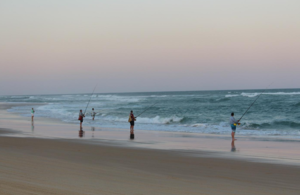Recreational sea anglers are calling for greater consideration of their needs and better regulation of commercial fishing practices, says new study.
New research by Substance and Centre for Environment, Fisheries & Aquaculture Science (Cefas), funded by Defra, has provided insight into what recreational sea anglers value most when considering fisheries management.

The report, released today, found that in order to retain the support of recreational sea anglers, improvements to environmental conditions must be made a priority. The report also found an overwhelming majority urged for a greater balance between the interests of recreational sea anglers and the commercial fishing industry.
As the UK prepares to become an independent coastal state, the Government continues to engage with the commercial fishing and seafood industries, as well as recreational fishing communities across the country, to best develop future fisheries management plans that cater for all.
This study sought the views of recreational sea anglers on a range of areas including fish stocks, funding and data collection. It also provides new data on sea anglers’ value of key stocks such as cod and bass.
Fisheries Minister, Victoria Prentis said: “We welcome this research and the opportunity for sea angling communities to have their views heard. As we develop our plans for future fisheries management, we want to ensure the UK has a fishing sector that is not only profitable and sustainable but also enjoyable for those who participate in the sport of angling.”
Adam Brown, Head of Research from Substance said: “This research into sea anglers’ attitudes illustrates their desire to be involved in the management of marine fisheries. However, that willingness to contribute to management, data collection and especially funding, is heavily predicated on them believing that a better balance is achieved between recreational and commercial fisheries.”
Kieran Hyder, Principal Scientist at Cefas said: “This survey provides vital information on the value sea anglers place on fish and fishing, and how this is affected by changes to management. It also gives insights into sea angling attitudes that can be used to support the development of policy.”